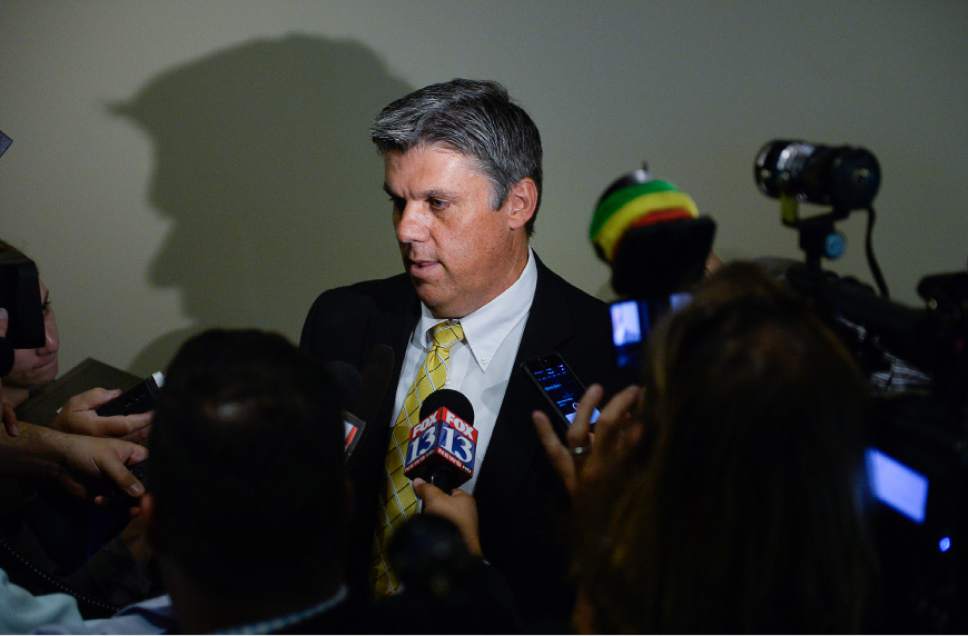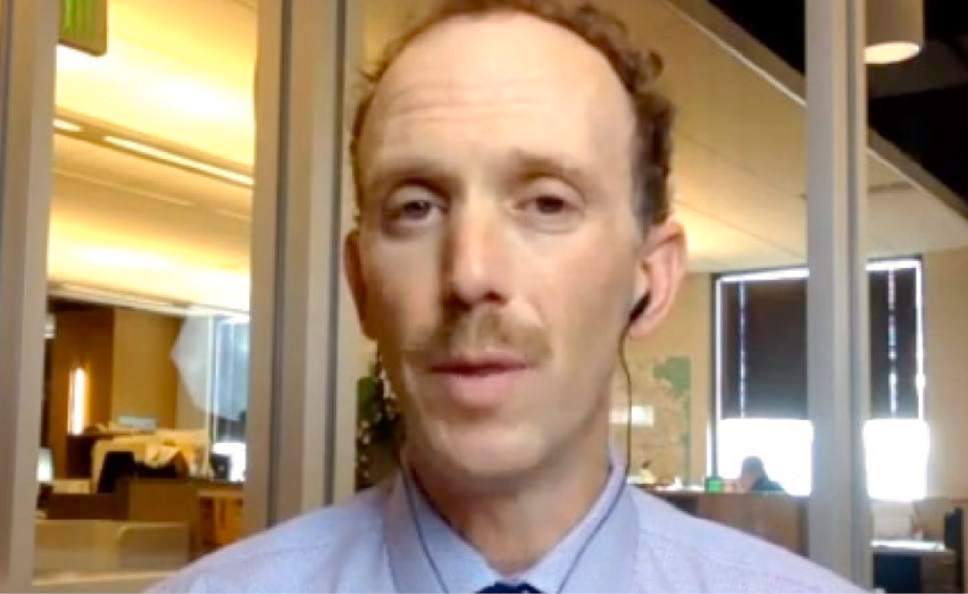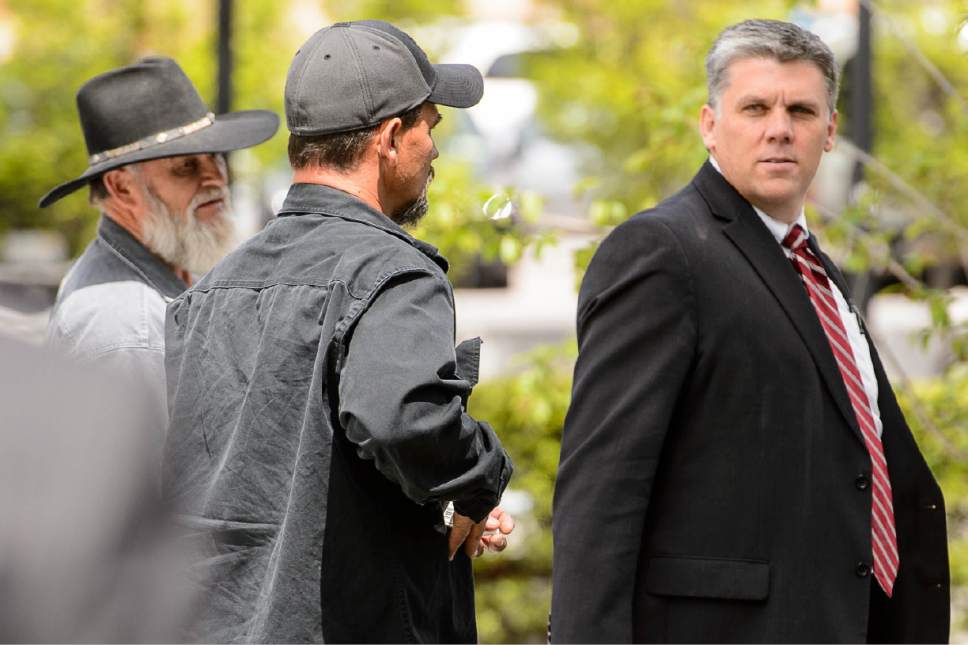This is an archived article that was published on sltrib.com in 2015, and information in the article may be outdated. It is provided only for personal research purposes and may not be reprinted.
A federal judge has recused himself from the Recapture Canyon case before he could sentence embattled San Juan County Commissioner Phil Lyman.
Lyman, who was found guilty in May of misdemeanor charges for organizing an illegal ATV ride into the artifact-filled canyon east of Blanding, challenged the impartiality of U.S. District Judge Robert Shelby, citing the jurist's friendship with a Southern Utah Wilderness Alliance legal director Steve Bloch and his family.
Lyman filed a motion to recuse Shelby on July 20, on the grounds that Shelby's connection to Bloch would "lead a reasonable person to question [Shelby's] impartiality in this case," according to the judge's decision, released Friday.
Though neither SUWA nor Bloch have a legal interest in the case, Lyman pointed out in his motion that SUWA urged prosecution against him in the first place and that Bloch attended the trial. Lyman added that SUWA joined other conservation groups in writing a letter to the court advocating for "punishment [that] reflects the egregiousness of [Lyman's] crimes."
The letter in question was sent to the probation officer responsible for making a sentencing recommendation, according to Bill Hedden, executive director for Grand Canyon Trust, which joined the letter.
It appears that letter helped sway Shelby to recuse himself, according to his decision. The recusal "will promote confidence in these proceedings and avoid even the appearance of impropriety in connection with the court's sentencing duties," his decision reads.
Judges often recuse themselves from cases in which they are close to one of the parties.
Lyman and co-defendant Monte Wells, who both face up to a year in prison and $100,000 in fines, were to be sentenced Sept. 15. The sentencing judge will also determine whether to stick Lyman with a $172,302.70 bill for damage the BLM alleges protest riders caused, according to the motion. Lyman's supporters say that damage assessment was trumped up.
They argue Lyman is innocent because the BLM lacked the authority to close the road leading into the canyon, and that the closure was not valid at the time of the protest. In a pretrial ruling, Shelby declared that the canyon was properly closed.
Now, Utah Attorney General Sean Reyes is investigating whether the road segment entering the canyon was legally closed and whether it should be included in the state's RS 2477 lawsuits seeking title to 12,500 other routes. And Gov. Gary Herbert intends to divert $10,000 from his re-election campaign to Lyman's defense — even though at the time of the 2014 rally, he had urged protesters to obey the law.
Twitter: @MikeyPanda







